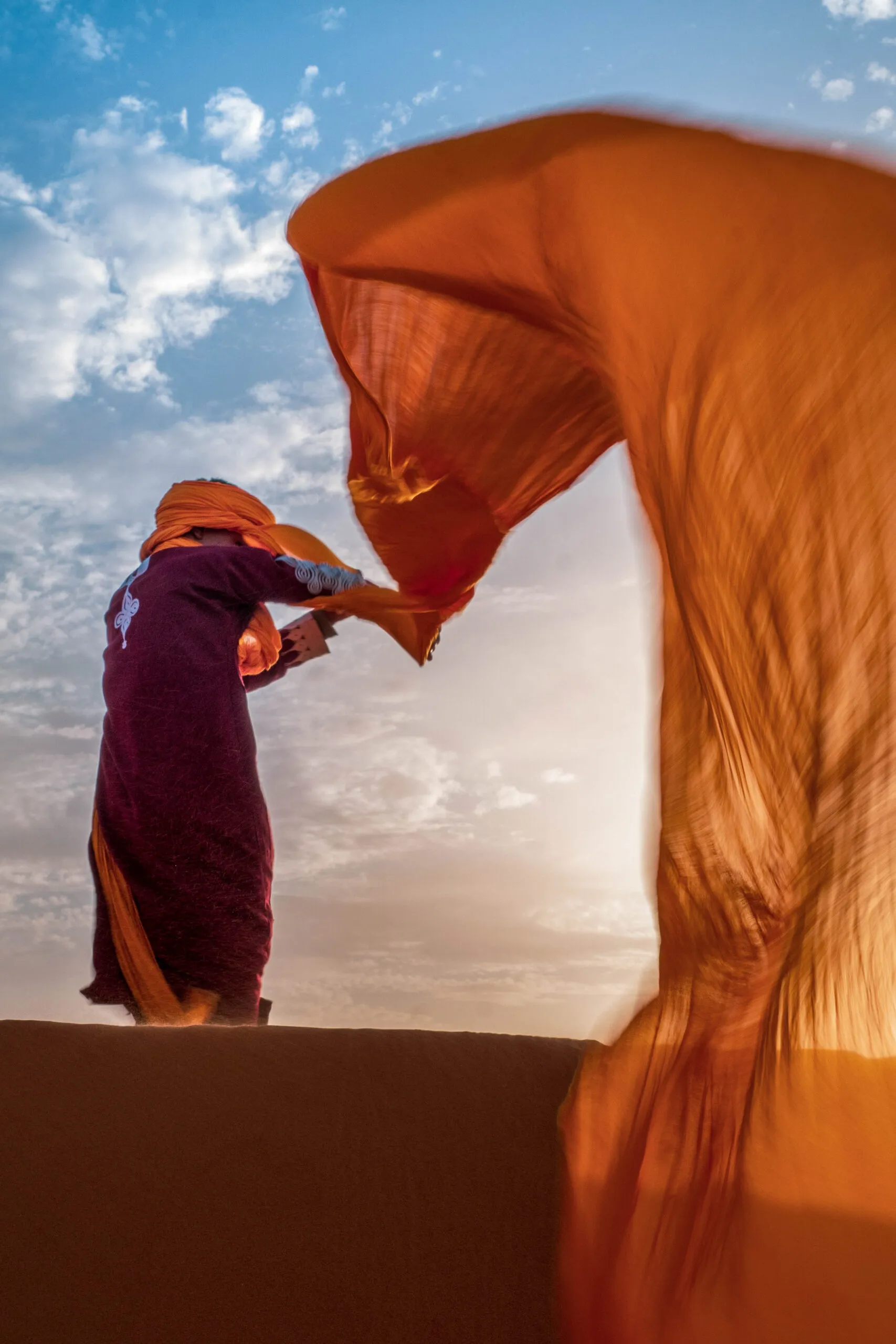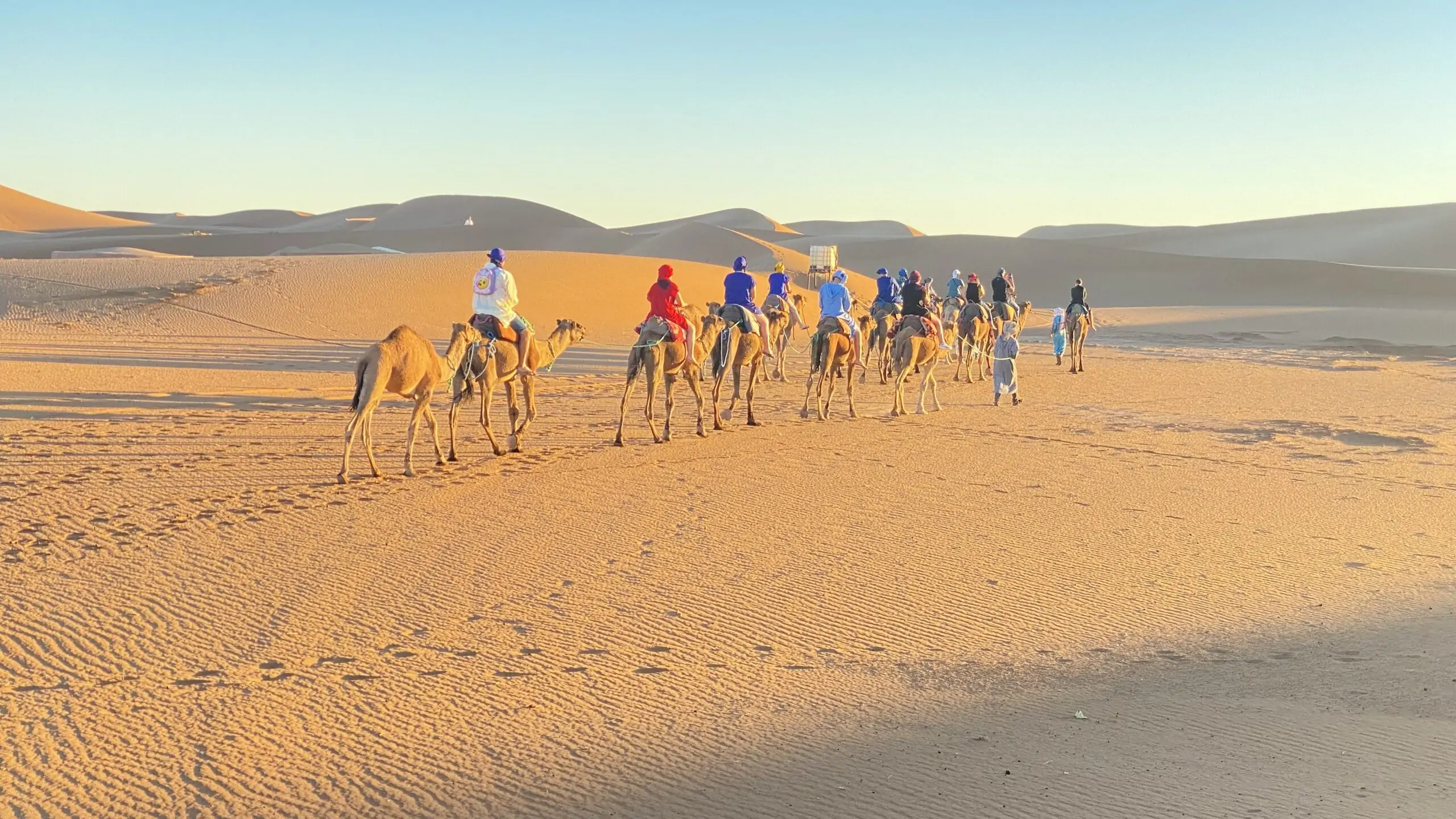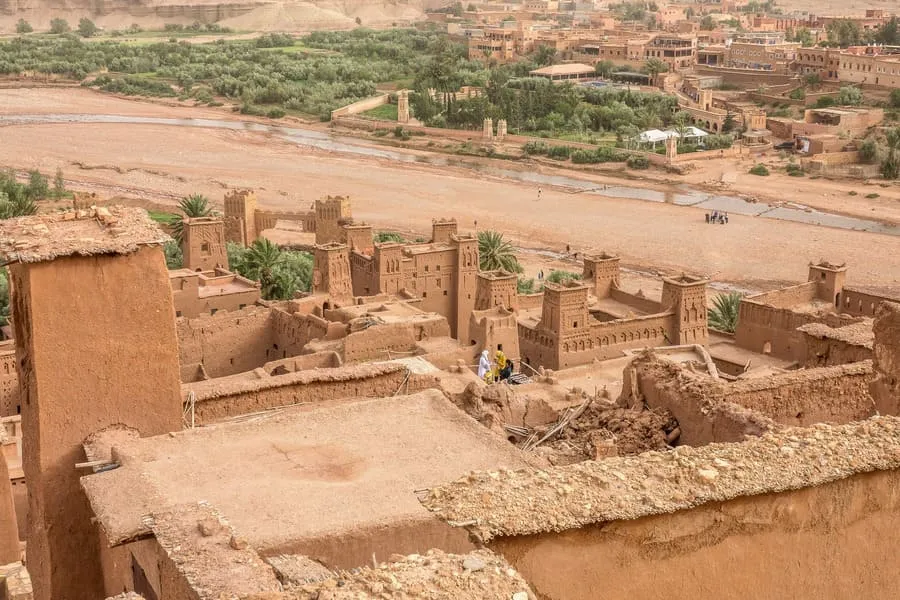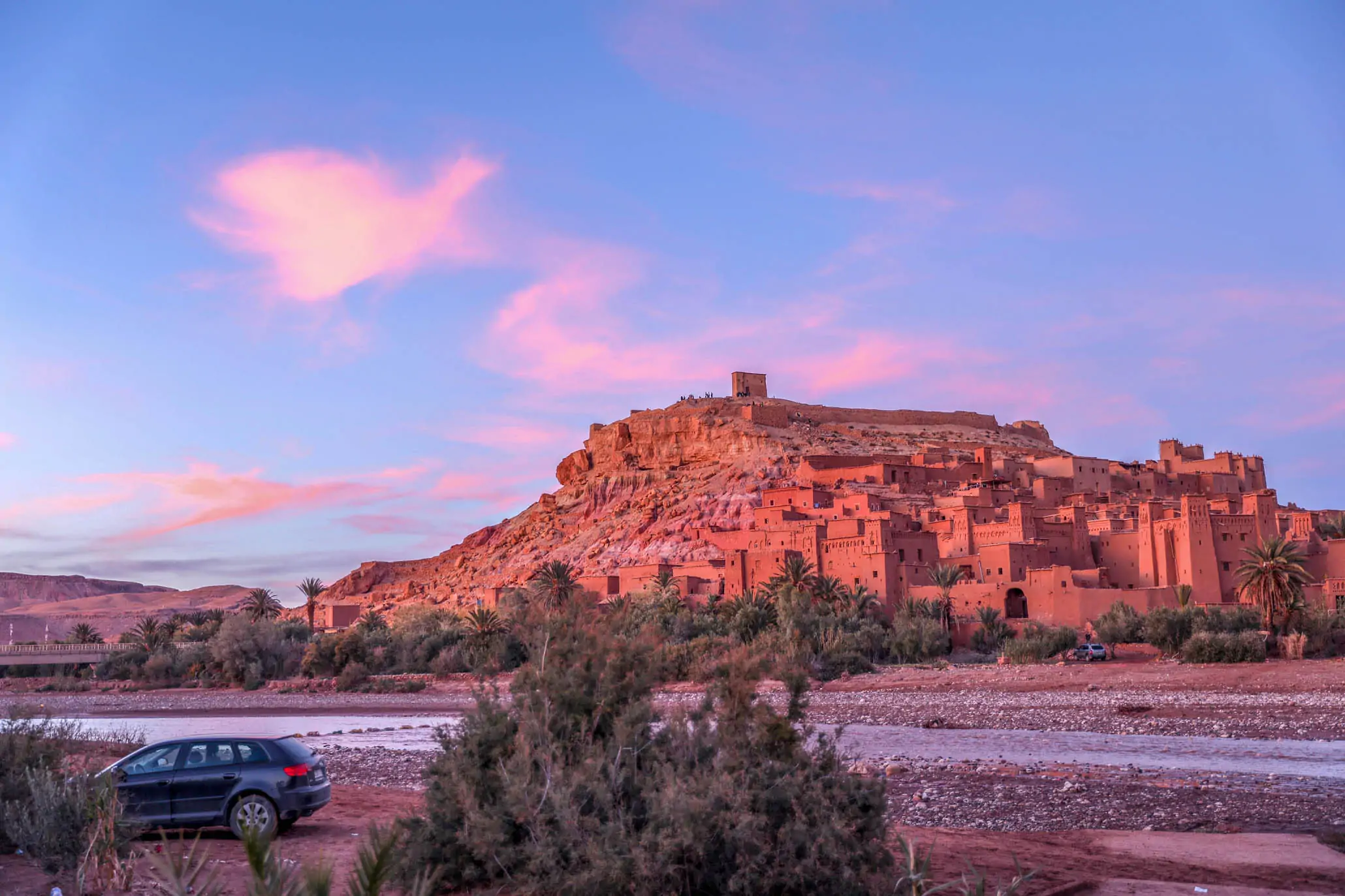About Morocco
Morocco is perched strategically on the western shoulder of the African continent, just 15kms away from Europe via Gibraltar. While part of the Arab world with its history closely linked to the ancient camel caravan routes and great dunes of the Sahara, its proximity to Europe and its mix of Arab, Berber, Jewish, European and African communities creates a rich tapestry of sights and sounds to tempt the traveller.
The land :
The geography of Morocco is dominated by majestic mountain ranges. The Rif Mountains in the north hug the Mediterranean coast with
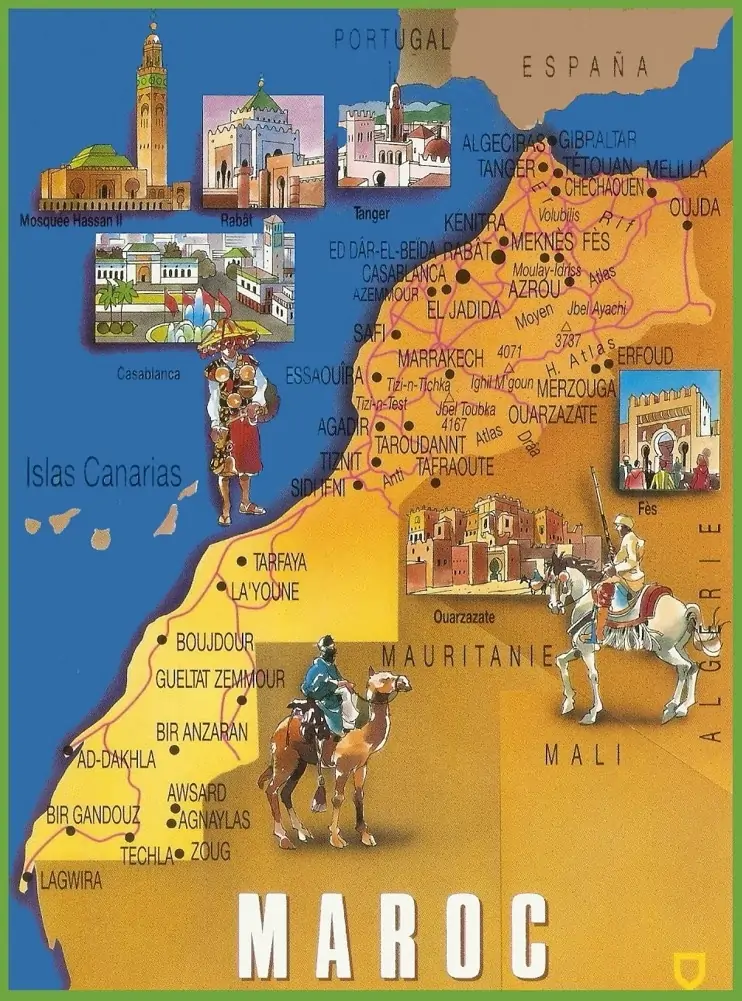
forested national parks. Their eastern reaches nudge the formidable Atlas Mountains which effectively slice Morocco diagonally from the south west coast to eastern deserts in 3 huge distinctive ranges. While the mountains are harsh and barren, the valleys are fertile as are the rich plains north of Marrakech. Morocco also enjoys a long coastline, with unspoilt ocean beaches to the west, and warm Mediterranean waters to the north.
The climate varies considerably as a result of these mountains. In winter mountain roads may be unpassable, but the southern desert areas balmy; in summer the mountains offer great trekking but the deserts will be sizzling.
History :
Morocco has been inhabited since before the European Stone Age. After the passing of the Ice Age, the Maghreb (the area covered by Morocco, Algeria, Tunisia & Libya) saw the merging of many local races eventually to be known as the Amazigh, or the early Berber (tribes).
The last century BC saw a series of invasions beginning with the Romans. Over subsequent centuries Morocco endured successive war-like dynasties controlling large parts of the country, bringing with them turbulent times. Various European countries encroached on Morocco from the 19th Century, in particular France, Spain & Portugal. Morocco gained complete independence from France in 1956, with Morocco becoming a constitutional monarchy in 1962.
Today, Morocco is governed through a bicameral (or two-chamber) popularly elected parliament with an independent judiciary; the two chambers act principally in an advisory role to the monarch.
The people – Their language & religion :
Morocco has a population of approximately 34.5 million. The majority are of Arab or Berber descent, the Berber settling in North Africa many centuries before the Arabs. Virtually all Moroccans are Muslims, following the Sunni version of Islam, which arrived in the early part of the 8th century.
Arabic is the predominant language spoken in Morocco with French, the second language, also widely spoken; English is increasingly used by those in the tourist and other industries.
The Berber :
The Berber are the indigenous people of Morocco, having arrived possibly as early as 5,000 BC. They were predominantly Christian and Jewish followers until they converted to Islam around 700 AD. Proud, fierce fighters, they supported great Islamic Berber dynasties in campaigns that pushed into Spain, France, and areas of North Africa during the 9th & 10th Centuries, until these campaigns crumbled.
Today, 60% of Moroccans call themselves Berber, integrating into all levels of society and business, although a few maintain their nomadic life. The contribution to Moroccan art and culture of the Berber is unmistakable, lending an exotic and sometimes overwhelming vibrancy to what is modern Morocco.
For many people, the desert and camel trekking is a must when visiting Morocco, and we have tours which include overnight stays. If you wish to spend longer in the desert, this can be easily arranged with Amazing Journeys Morocco. And Visting Luxury Camp in Erg Chigaga

